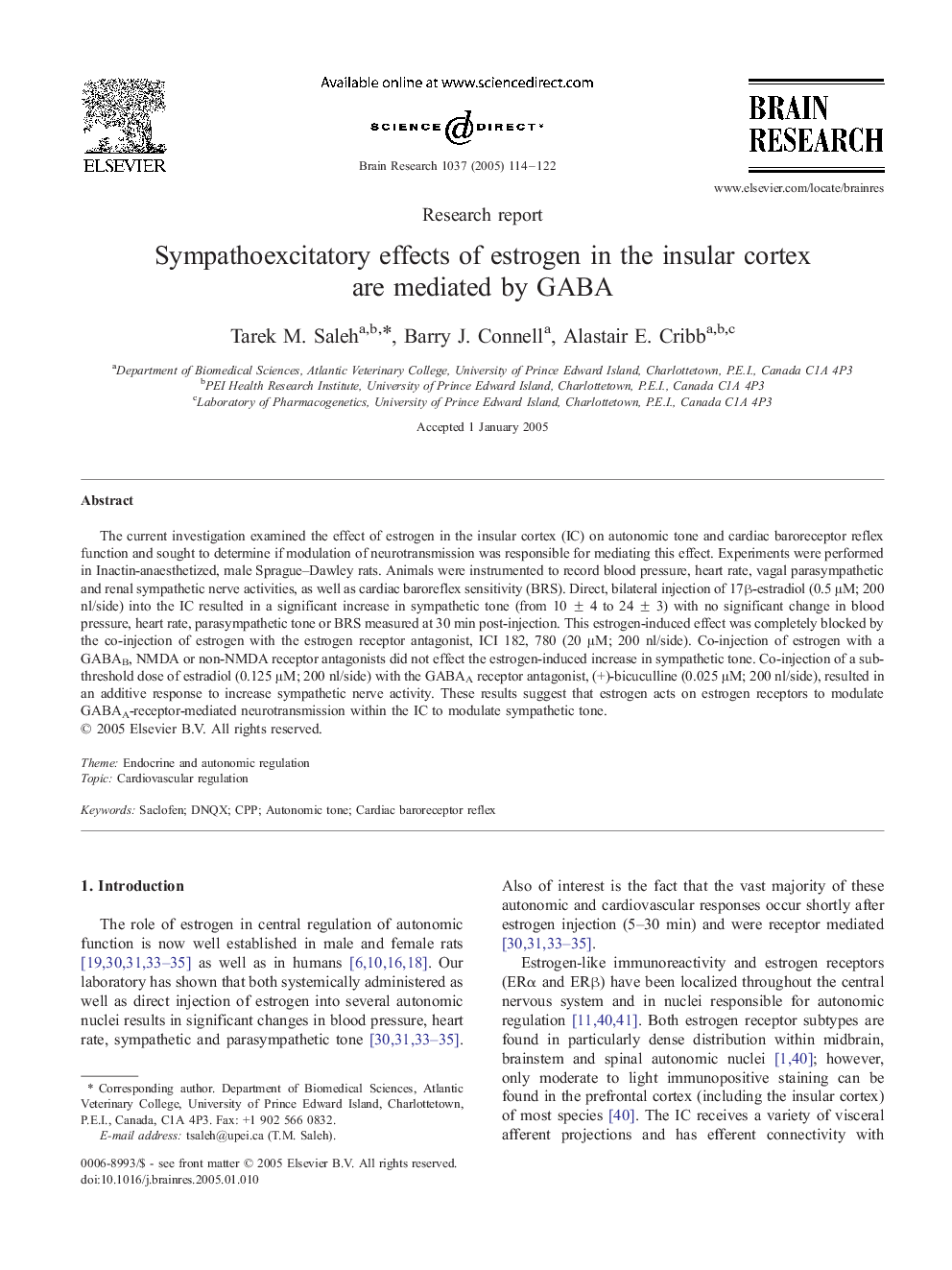| Article ID | Journal | Published Year | Pages | File Type |
|---|---|---|---|---|
| 9416645 | Brain Research | 2005 | 9 Pages |
Abstract
The current investigation examined the effect of estrogen in the insular cortex (IC) on autonomic tone and cardiac baroreceptor reflex function and sought to determine if modulation of neurotransmission was responsible for mediating this effect. Experiments were performed in Inactin-anaesthetized, male Sprague-Dawley rats. Animals were instrumented to record blood pressure, heart rate, vagal parasympathetic and renal sympathetic nerve activities, as well as cardiac baroreflex sensitivity (BRS). Direct, bilateral injection of 17β-estradiol (0.5 μM; 200 nl/side) into the IC resulted in a significant increase in sympathetic tone (from 10 ± 4 to 24 ± 3) with no significant change in blood pressure, heart rate, parasympathetic tone or BRS measured at 30 min post-injection. This estrogen-induced effect was completely blocked by the co-injection of estrogen with the estrogen receptor antagonist, ICI 182, 780 (20 μM; 200 nl/side). Co-injection of estrogen with a GABAB, NMDA or non-NMDA receptor antagonists did not effect the estrogen-induced increase in sympathetic tone. Co-injection of a sub-threshold dose of estradiol (0.125 μM; 200 nl/side) with the GABAA receptor antagonist, (+)-bicuculline (0.025 μM; 200 nl/side), resulted in an additive response to increase sympathetic nerve activity. These results suggest that estrogen acts on estrogen receptors to modulate GABAA-receptor-mediated neurotransmission within the IC to modulate sympathetic tone.
Related Topics
Life Sciences
Neuroscience
Neuroscience (General)
Authors
Tarek M. Saleh, Barry J. Connell, Alastair E. Cribb,
